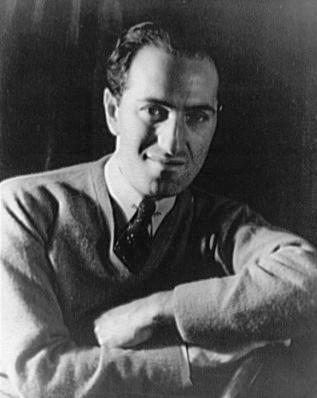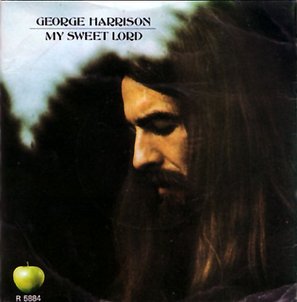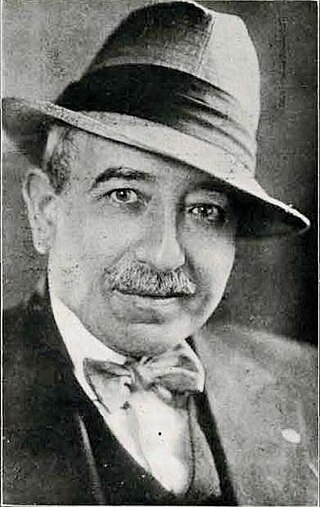This article needs additional citations for verification .(May 2009) |
 | |
Regional anthem of Michigan | |
| Lyrics | Giles Kavanagh, 1933 |
|---|---|
| Music | H. O'Reilly Clint, 1933 |
| Adopted | 1937 |
This article needs additional citations for verification .(May 2009) |
 | |
Regional anthem of Michigan | |
| Lyrics | Giles Kavanagh, 1933 |
|---|---|
| Music | H. O'Reilly Clint, 1933 |
| Adopted | 1937 |
It was written by Giles Kavanagh (lyrics) and H. O'Reilly Clint (music) in 1933. It was published by Clint's own music publishing company at Detroit. It was formally adopted as an official state song by the Michigan Legislature in 1937 by Concurrent Resolution 17. [1]
Despite being an official state anthem, the song is very rarely sung and has never been used on formal state occasions. This may be because doing so would incur liability to pay a royalty. The State did not purchase and/or the authors would not sell the copyright. Its copyright will expire at the end of 2028, the 95th year after its publication, per the Copyright Term Extension Act. [2]
There are two versions of the sheet music; one is held at the Rare Book Room at the Library of Michigan and the other is housed at the Bentley Historical Museum. [3]

George Gershwin was an American composer and pianist whose compositions spanned popular, jazz and classical genres. Among his best-known works are the orchestral compositions Rhapsody in Blue (1924) and An American in Paris (1928), the songs "Swanee" (1919) and "Fascinating Rhythm" (1924), the jazz standards "Embraceable You" (1928) and "I Got Rhythm" (1930), and the opera Porgy and Bess (1935), which included the hit "Summertime".

Musical composition can refer to an original piece or work of music, either vocal or instrumental, the structure of a musical piece or to the process of creating or writing a new piece of music. People who create new compositions are called composers. Composers of primarily songs are usually called songwriters; with songs, the person who writes lyrics for a song is the lyricist. In many cultures, including Western classical music, the act of composing typically includes the creation of music notation, such as a sheet music "score", which is then performed by the composer or by other musicians. In popular music and traditional music, songwriting may involve the creation of a basic outline of the song, called the lead sheet, which sets out the melody, lyrics and chord progression. In classical music, orchestration is typically done by the composer, but in musical theatre and in pop music, songwriters may hire an arranger to do the orchestration. In some cases, a pop or traditional songwriter may not use written notation at all and instead compose the song in their mind and then play, sing or record it from memory. In jazz and popular music, notable sound recordings by influential performers are given the weight that written or printed scores play in classical music.
William "Tell" Taylor (aka TellienéTell Roberts;. Tell was born October 28, 1876 to Clarinda Jane Roberts and John Asbury Taylor, on a farm near the Village of Vanlue, Amanda Township, Hancock County, Ohio. He was an American traveling vaudeville performer, tenor vocalist, playwright, music publisher, composer, and lyricist who had written over 200 popular songs. His biggest hit was "Down by the Old Mill Stream" from 1910, one of the most commercially successful Tin Pan Alley publications of the era. The song was published by Tell Taylor, Inc., which he had co-founded in 1907. Taylor performed vaudeville theaters and founded a Chicago music publishing house bearing his name. His other notable songs include "He Sleeps Beneath the Soil of France," "I Love You Best of All," "If Dreams Come True," "Little Old Home in the Valley," "Rock Me to Sleep in the Old Rocking Chair," "Some Day," and "When the Maple Leaves Were Falling." Taylor also wrote the Broadway comedies Tiger Lillee and In New York Town.

Ivor Bertie Gurney was an English poet and composer, particularly of songs. He was born and raised in Gloucester. He suffered from bipolar disorder through much of his life and spent his last 15 years in psychiatric hospitals. Critical evaluation of Gurney has been complicated by this, and also by the need to assess both his poetry and his music. Gurney himself thought of music as his true vocation: "The brighter visions brought music; the fainter verse".

"Georgia on My Mind" is a 1930 song written by Hoagy Carmichael and Stuart Gorrell and first recorded that same year by Hoagy Carmichael at the RCA Victor Studios at 155 East 24th Street in New York City. However, the song has been most often associated with soul singer Ray Charles, who was a native of the U.S. state of Georgia and recorded it for his 1960 album The Genius Hits the Road.

The Proletarian Party of America (PPA) was a small communist political party in the United States, originating in 1920 and terminated in 1971. Originally an offshoot of the Communist Party of America, the group maintained an independent existence for over five decades. It is best remembered for carrying forward Charles H. Kerr & Co., the oldest publisher of Marxist books in America.

"My Sweet Lord" is a song by English musician George Harrison, released in November 1970 on his triple album All Things Must Pass. It was also released as a single, Harrison's first as a solo artist, and topped charts worldwide; it was the biggest-selling single of 1971 in the UK. In America and Britain, the song was the first number-one single by an ex-Beatle. Harrison originally gave the song to his fellow Apple Records artist Billy Preston to record; this version, which Harrison co-produced, appeared on Preston's Encouraging Words album in September 1970.
"Michigan, My Michigan" is a popular anthem in the State of Michigan. The actual state song, "My Michigan", was formally adopted in 1937 but remains relatively obscure, partially because of the misconception that the official song is "Michigan, My Michigan". A 2003 bill to make the song an official state song failed to pass.
"You Are My Sunshine" is a standard of American old-time country music and one of the official state songs of Louisiana. Its original writer is disputed. According to the performance rights organisation BMI, by the year 2000 the song had been recorded by over 350 artists and translated into 30 languages.

"On the Banks of the Wabash, Far Away" was among the best-selling songs of the 19th century, earning over $100,000 from sheet-music revenues. Written and composed by American songwriter Paul Dresser, it was published by the Tin Pan Alley firm of Howley, Haviland and Company in October 1897. The lyrics of the ballad reminisce about life near Dresser's childhood home by the Wabash River in Indiana, United States. The song remained popular for decades, and the Indiana General Assembly adopted it as the official state song on March 14, 1913. The song was the basis for a 1923 film of the same title. Its longtime popularity led to the emergence of several lyrical versions, including an 1898 anti-war song and a Swedish version that was a number-one hit.

"Clint Eastwood" is a song by English virtual band Gorillaz, released as the first single from their self-titled debut album on 5 March 2001. The song is named after the actor of the same name due to its similarity to the theme music of The Good, the Bad and the Ugly. The song is a mix of electronic music, dub, hip hop and rock. The verses are rapped by Del the Funky Homosapien, portrayed as a blue phantom in the video, while the chorus is sung by Damon Albarn.
A publishing contract is a legal contract between a publisher and a writer or author, to publish original content by the writer(s) or author(s). This may involve a single written work, or a series of works.

"Hey, Good Lookin'" is a 1951 song written and recorded by Hank Williams, and his version was inducted into the Grammy Hall of Fame in 2001. In 2003, CMT voted the Hank Williams version No. 19 on CMT's 100 Greatest Songs of Country Music. Since its original 1951 recording it has been covered by a variety of artists.
"I've Got My Love to Keep Me Warm" is a popular song copyrighted in 1937 by its composer, Irving Berlin, and first recorded by (i) Ray Noble, Howard Barrie, vocalist; (ii) Red Norvo, Mildred Bailey, vocalist; (iii) and Billie Holiday with her orchestra. The song – sung by Dick Powell and Alice Faye – debuted on film February 12, 1937, in the musical, On the Avenue.
Jimmy Campbell and Reg Connelly were English songwriters and music publishers. Writing together in the 1920s and 1930s, they sometimes used the pseudonym Irving King for their song compositions, and often worked as lyricists in collaboration with other composers. Together, they established the successful music publishing firm Campbell Connelly.

"Amhrán na bhFiann", called "The Soldier's Song" in English, is the national anthem of the Republic of Ireland. The music was composed by Peadar Kearney and Patrick Heeney, the original English lyrics by Kearney, and the Irish-language translation, now usually the version heard, by Liam Ó Rinn. The song has three verses, but only the choral refrain is used as the national anthem.

Leopold Feist, in 1897 founded and ran a music publishing firm bearing his name. In the 1920s, at the height of the golden age of popular music, his firm was among the seven largest publishers of popular music in the world. Leo Feist, Inc., ran until 1934. The company used the motto "You can't go wrong, with any FEIST Song."

Emma Marcy Raymond was an American musician, composer, and author of operetta, songs and piano music. She was one of very few women in her day who had composed the entire music of an opera and lived to see it produced.
White, Smith & Company was a music publishing firm in Boston, Massachusetts. It issued sheet music and published industry journals, notably the monthly Folio.
Martha Davis Coe was a musician, composer, PR executive and inventor. She was on the staff of Girl Scouts of the USA (GSUSA) for ten years.